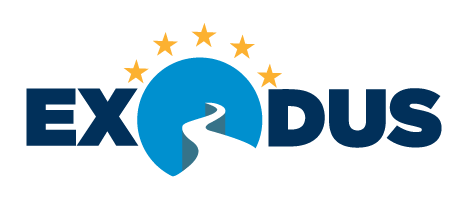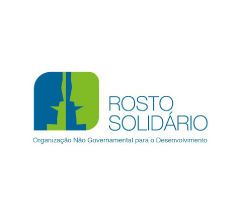EXODUS
Rosto Solidário
Rosto Solidário work aims to foster global citizenship and solidarity by enhancing local communities’ human and social development. RS core principles are civic participation, social integration, solidarity, networking and partnership.
The organization scope of work includes four main areas: International Development Cooperation, Global Citizenship Education, Volunteering and Family-based Social Support. Gender Equity, Human Rights and Social Inclusion are addressed as cross-cutting issues. Also a methodological approach the organization consider Non Formal Education as a vehicle for lifelong learning opportunities within the Global Citizenship Framework.
RS legal status of public utility as NGO has been recognized by the Ministry of Foreign Affairs in 2008.
As a Portuguese NGDO Platform member it is represented both in Development Education Working Group and Working Group on Ethics.
RS is a credited host and sending organization for European Voluntary Service projects since 2011.
At local level, RS is a member of Rede Social do concelho de Santa Maria da Feira (local network of 115 organizations with social intervention programmes – following National Action Plan for Inclusion guidelines). Within this network, RS has been awarded four times as recognition of its work in volunteering and supporting local communities’ development.
Rosto Solidário promotes mobility and learning opportunities for youth since 2011 under the Erasmus Plus programme.
RS promotes and is partner in European voluntary service / European Solidarity Corps, patnership building activities, training courses and youth exchanges. It is also a Eurodesk multiplier.
Overall RS initiatives within Global Citizenship Education aims to raise awereness and trainning young people for global citizenship and diversity, European values, civic participation, intercultural dialogue as well as fostering solidarity and action on common wealth behalf.
Paulo Costa has a degree in Economics, a master program in Development and a post-graduation in Non-profit Organization Management. He has been working in Volunteering, Development and Cooperation Programs in Angola since 2005. After 2010 he coordinates projects in Portugal (Volunteering, Development Education and EVS) and gives the financial, communication and fundraising support to the board. He is responsible for the coordination of RS Erasmus+ projects, including the establishment of local partnerships, development of projects outputs and workshops development. His work as youngster’s facilitator is recognized and proven and his knowledge on non formal education allows the intervention with several target groups and contexts.
Patrícia Ribeiro has a PhD in Educational Sciences with an investigation and published articles that problematize the political, sociological, economic, and intervention discourses that define social inclusion, educational/training and employment policies. Graduated in Psychology and Master in Adult Education and Training from the University of Porto. Postgraduate in Conflicts Mediation on Educational Context from University Lusófona of Porto. Educational Psychologist and Mediator; certified trainer, with various trainings for teachers, youngster’s and other target groups. She works mainly with non-formal and informal education methodologies, including gamification. She has been working also as Project Assistant in a non-governmental organization, especially involved on Erasmus + Projects, namely those which the major goals are related to education and youth fields.
Maria Oliveira is a social worker and trainer in human rights and educational practices for health. Since 2008 has been working in communitarian intervention projects with people with fewer opportunities. She is a co-opted member at Large Commission of Santa Maria da Feira Commission for the Promotion of Rights and the Protection of Children and Young People. She’s a Eurodesk Multiplier. She has a Degree in social education, a degree in social work and post-graduation in communitarian health.
Catarina Gonçalves has a master in Environmental Economics and a master in Environmental Engineering from the University of Porto with an investigation in projects of environmental and economic sustainability. She has several volunteering experience in development cooperation in Angola, EVS in Italy and citizenship education projects in Italy and Portugal, specially with women and children. She works with non formal methodologies as a trainer of development cooperation volunteering. She also teaches environmental economics course at the University of Minho.
Ana Pinho graduated in Languages and International Relations, concluded her Master’s in History, International Relations and Cooperation with a research on the life stories of irregular migrants in detention, and a PhD in History with a research on the hosting of foreign children in Portugal after World War II, a project fully funded by the Municipality of Porto. With a graduation in Musical Theatre, a Post-graduation in Community Arts, a professional course for trainers in Urban Dances and several professional experiences as a performer, she has also been applying Arts in the various contexts she’s been working on: a temporary reception center for children, an elderly home, a detention center for irregular migrants (with JRS), appart from various volunteering activities. Currently, she’s working as a project manager and trainer for both the first Second Chance School in Portugal and the NGDO Rosto Solidário.

